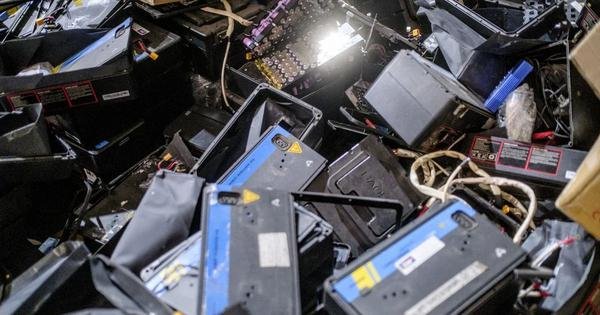Colombian EV Battery Recycling Startups: Challenges Ahead
Electric Vehicles Gain Popularity in Colombia
Juan Vega, a Cartagena resident, has enjoyed his electric motorcycle for three years. But when the lithium battery needed replacement last year, he encountered a problem: limited safe disposal options.
- Over 9,000 electric vehicles were sold in Colombia last year
- Five battery recycling companies have emerged in recent years
- These companies process thousands of tons of batteries annually
Battery Recycling Challenges
Despite Colombia’s robust e-waste recycling regulations, battery recycling startups face hurdles.
- Declining recovery rates for electronic devices
- Limited ability to transport hazardous materials
Current Battery Recycling State in Colombia
Colombia has battery collection and management systems, but lacks infrastructure to diagnose and repurpose batteries.
- By mid-2024, nearly 250,000 EVs were circulating in Latin America and the Caribbean
- Battery recycling companies are emerging across the region
- Some companies are expanding beyond their borders
Fortech and BATx: Success Stories
Fortech, a Costa Rican company, plans to open a northern Mexican plant with a 10,000-ton annual EV battery processing capacity. The company repurposes car batteries into other products.
- “Ten golf cart batteries, 20 scooter batteries, or five banks for solar storage can come from an electric car [battery],” Francisco Pereira, Fortech’s project manager, told Rest of World.
BATx, a Medellín-based company, also recycles lithium batteries into new ones. Last year, BATx received about 20 electric car batteries and repurposed them into 200 solar power storage banks and batteries for light mobility vehicles, such as scooters and e-bikes.
Altero: Zero-Emission Recycling Method
Altero, founded in 2022 in Medellín, claims to have developed a method to recycle rechargeable lithium-ion batteries for electronic devices and EV batteries without producing emissions or waste.
- The company processed 150 tons of e-waste last year
- 5% of which came from EVs
The Future of Battery Recycling in Colombia
While the collection rate of industrial batteries and EV batteries in Colombia was only 0.5% in 2024, it is expected to reach 23% by 2033.
- The battery recycling industry must overcome significant obstacles to meet this goal
- Involving informal micro-recyclers is one way to address the problem
- Transporting batteries to recycling facilities is also a challenge
Producers’ Role in Battery Recycling
In 2022, Colombia added a clause in its e-waste recycling framework, making producers responsible for batteries’ entire life cycle.
- Auteco Blue, a company that manufactures electric motorcycles and imports EVs from China, offers to pick up used batteries from customers and repair them
- Some batteries are clandestinely shipped out of Colombia, which is prohibited by the Basel Convention
Conclusion
While battery recycling startups in Colombia face significant challenges, success stories and potential solutions exist. With proper infrastructure and regulations, the country can become an e-waste recycling leader and minimize its environmental impact.



